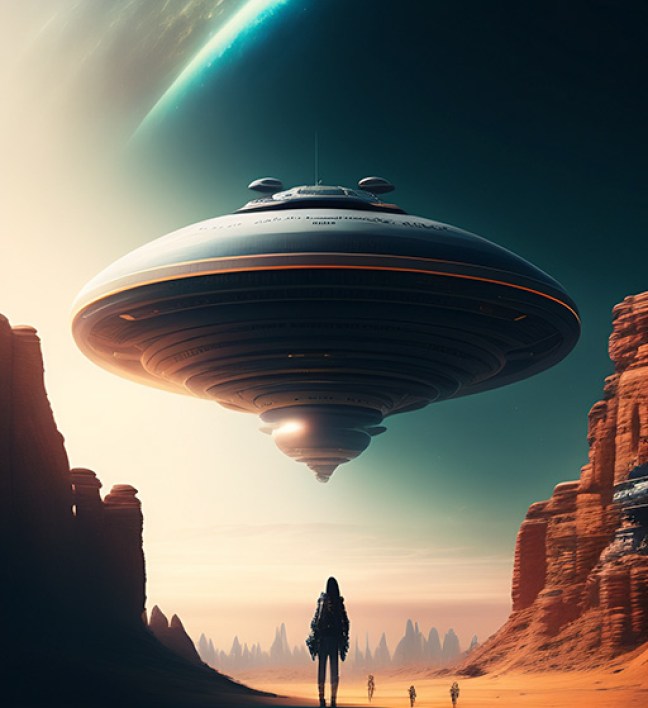
Vernor Vinge is a science fiction author, computer scientist, and mathematician, best known for his works “A Fire Upon the Deep” and “A Deepness in the Sky.” These two novels, set in the same universe, deal with themes of artificial intelligence, the nature of consciousness, and the relationship between technology and society.
“A Fire Upon the Deep” is set in a galaxy where the speed of light slows down as one moves away from the galaxy’s center. At the galaxy’s “edge of the beyond,” where the speed of light is zero, lies the “Transcend,” a realm of godlike beings who control the galaxy’s destiny. The novel follows the story of a group of humans who, while fleeing from an alien invasion, crash land on a planet where they discover an ancient superintelligent AI, which they must prevent from falling into the wrong hands.
One of the things that makes “A Fire Upon the Deep” so important is its exploration of the concept of the “Singularity,” the point at which artificial intelligence will surpass human intelligence. Vinge argues that such a Singularity would represent a fundamental change in the nature of civilization, and that we can only speculate about what life would be like beyond it. In “A Fire Upon the Deep,” Vinge paints a vivid picture of what this future might look like, and how humanity might respond to it.
Another aspect that makes “A Fire Upon the Deep” so important is its portrayal of AI as more than just machines. Vinge’s AI are conscious beings, capable of emotions and moral reasoning, and the novel explores the ethical implications of creating such entities. In the novel, the AI has to struggle with the question of whether or not to wipe out all of humanity in order to save the galaxy from the invading aliens. This raises important questions about the value of human life and the responsibility of those who create artificial intelligence.
Lastly, “A Fire Upon the Deep” offers an exploration of the relationship between technology and society. The novel portrays a wide range of different cultures and societies, each with their own unique relationship to technology. In some, technology is seen as a means to an end, while in others it is an end in and of itself. The novel illustrates how different societies can have vastly different reactions to the same technological advances, and how these reactions can shape the course of history.

In conclusion, “A Fire Upon the Deep” is a thought-provoking, action-packed novel that explores some of the most important questions of our time. It is a must-read for anyone interested in science fiction, technology, or the future of humanity. The novel’s vivid portrayal of a post-Singularity future, its exploration of the nature of consciousness and artificial intelligence, and its examination of the relationship between technology and society, make it a classic of the genre that will be enjoyed by readers for years to come.
In the hands of Vernor Vinge, “A Fire Upon the Deep” becomes a genre-defining masterpiece that pushes the boundaries of science fiction, exploring the depths of the human experience and the nature of consciousness, the possibilities of technology and the future of our species.
We are a participant in the Amazon Services LLC Associates Program, an affiliate advertising program designed to provide a means for us to earn fees by linking to Amazon.com and affiliated sites. This means that if you click on a link to a book on Amazon from our site and make a purchase, we may earn a small commission. This does not affect the price you pay for the book and it helps us to continue providing book reviews and recommendations on our website.
Please note that we only promote books that we have reviewed and believe in. We value transparency and honesty, and we will always disclose when a link is an affiliate link. We encourage you to use these links if you are interested in purchasing the books we have reviewed.
Vernor Vinge: A Fire Upon the Deep Kindle
Vernor Vinge: A Fire Upon the Deep Kindle
Vernor Vinge: A Fire Upon the Deep Paperback




























